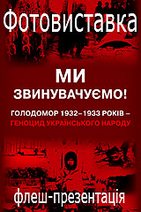
The first record of the Old Russian town of Lyubech we find in "The Tale of Bygone Years" dated back to 882, when on the way from Novgorod to Kyiv Prince Oleg the Prophetic captured it and set his governor there ("occupied Lyubets and set his man"). One more ancient record goes back to 907 - in the agreement of the same Prince Oleg with Byzantium together with the then most famous Old Russian towns as Kyiv, Chernihiv, Pereyaslav, Polotsk.
Already at that time this town on the Dnipro was an important strong point on the way "from the Varangians to the Greeks". The mighty military garrison was placed in the town and numerous commercial and handicraft people resided there. Lyubech merchants carried on brisk trade with Byzantium, the Khazars and Arabian East. In 949 the Byzantine Emperor Kostyantyn Bagryanorodnyy mentions Lyubech in the treatise "On Empire Government" as a commercial town with a wharf.
The Drevlianian Prince Mal, as historians consider, spent his last years in Lyubech, here his children were born: Dobrynya Nikytych, glorified in the Russian epics, and Malusha, who
became the wife of the great Kyiv Prince Svyatoslav and the mother of Volodymyr, the Saint.
Here, at the place of the former Detinets a strong castle was erected at the end of the XIth century, its construction is usually associated with Volodymyr Monomakh, who was ruling at that time in Chernihiv, and since that time it had become the residence of Chernihiv princes.
The crucial events of the Old Russian history are connected with Lyubech. Here in the battle of 1016 the Novgorod Prince Yaroslav the Wise smashed the army of Svyatopolk the Cursed. In 1097 the well-known Congress of the Old Russian Princes was held in the Lyubech Castle, where they came to the agreement about the internecine wars cessation and declared the principle of inherited lands possession by every prince ("let everyone possess his native land").
Lyubech was not only the significant town in military, economic and administrative spheres. The St. Antoniy Pecherskyy, one of the most famous religious figures of Kievan Rus, the founder of monkhood in the East Slavonic lands was born here. Still being young he dug a cave on the flank of one of the Lyubech hills, where the Antoniy's Monastery sprang up and existed for several centuries. "The Lyubech Synodyk", a monument of the Old Russian literature and an important source in history of Chernihiv-Sivershchyna land of the Xlll-XIVth centuries was written in this dwelling of God.
Important was the role of Lyubech in later time - the Cossacks period. It was a sotnia town of Chernihiv regiment. The ruins of the Polubotok's stone edifice, one of few patterns of civil architecture built at the beginning of the XVIIIth century in Ukraine, were preserved there up to present. The stone edifice was constructed within the place of the old castle by the order of hetman Ivan Mazepa.
At present Lyubech is an urban settlement. The only reminders of its glorious history are: the memorable sign on the Castle Hill in honour of the 1100 anniversary of the annalistic Lyubech, the monument in honour of the Lyubech Congress of Princes in 1097, set up in 1997, and the Antoniy's Cave, near which public worship is held annually on July 23 in the memorial day of the St Antoniy Pecherskyy. The edifices of the later period are also preserved.
The picturesque Lyubech outskirts on the Dnipro, wonderful places for recreation, attract tourists as weft.

























